by Daniel Hathaway
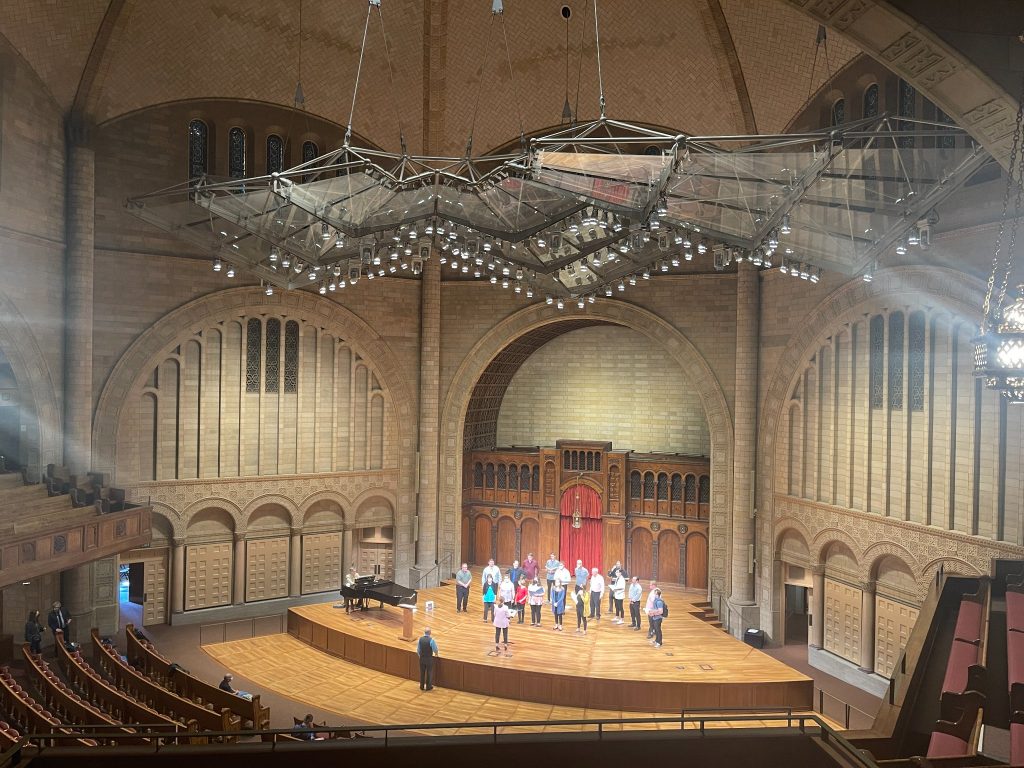
With libretto and music by Cathy Lesser Mansfield, the opera, which really more resembles a staged oratorio, filled the stage of Silver Hall with the 40-member cast and chorus.
The Sparks Fly Upward traces the saga of three families, two Jewish (the Rosenbaums and the Steins), one Christian (the Webers), beginning in the fall of 1938, when the Nazis start deporting Jews to Poland and the atrocities of Kristallnacht signal troubles to come. Escape plans are developed, one involving a family in Cleveland, another in which the Webers will hide their Jewish friends, but several of the children are arrested during the “Factory Action” raids on forced work locations and sent to Auschwitz.
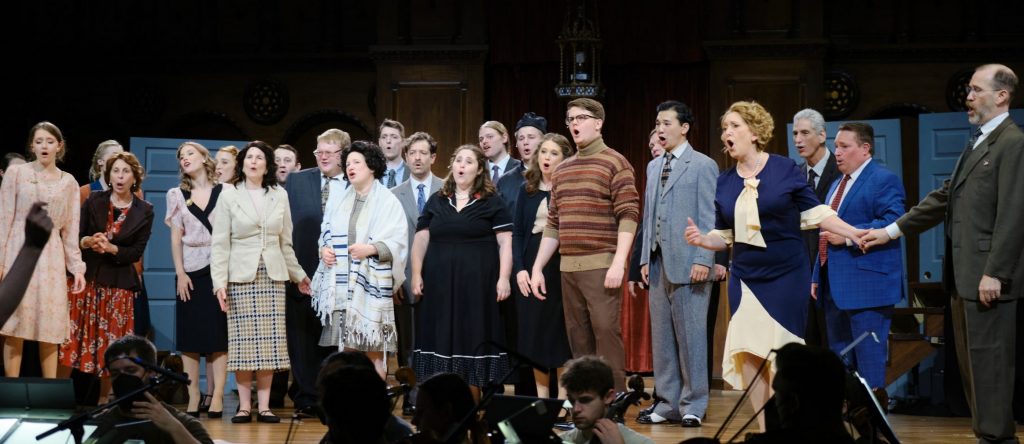
By the time the smoke clears at the end of the War, the two mothers, Rosa and Lina, have perished at the hands of the Nazis, the children are reunited, and the Rosenbaums and Steins emigrate to the U.S. Fifty years later, the three families reunite in Berlin to celebrate the rededication of the Neue Synagogue.
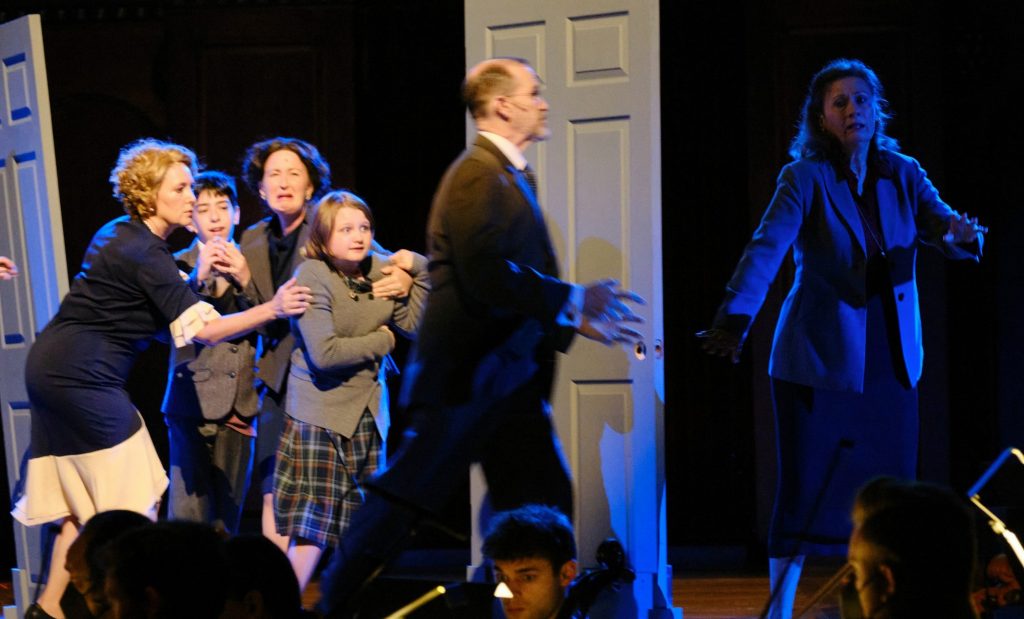
Other settings in the opera include apartments, stores, train stations, factories, and hiding places — more difficult to suggest in such a vast space. Smaller scenes were staged on platforms and effectively isolated by lighting.
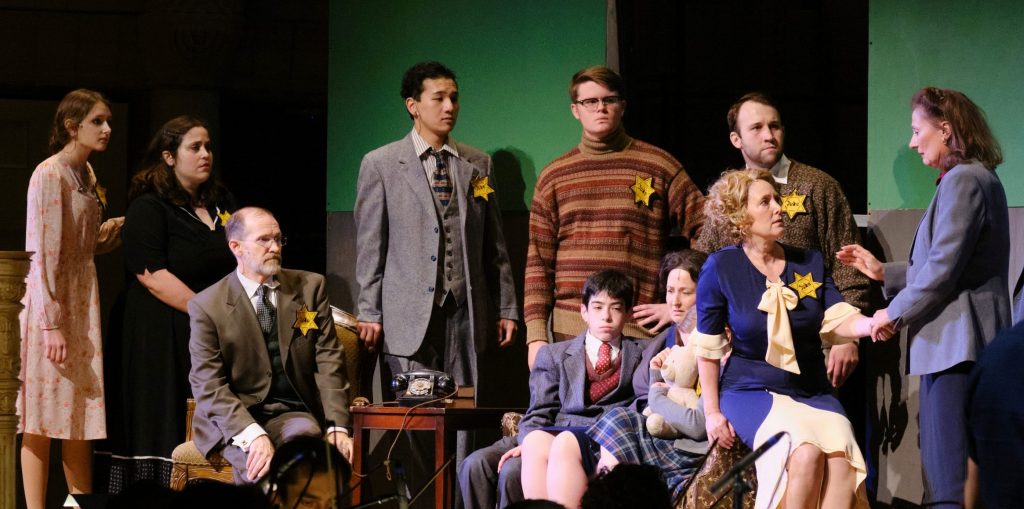
There’s not a lot of action, which is what makes this piece more of a staged oratorio, but Cathy Manfield’s music is continuously engaging, and some choruses with sophisticated layering of voices and orchestra are ravishingly beautiful. There are not many opportunities for joyful music in a production about the Holocaust, but here there were enough to sustain interest throughout.
,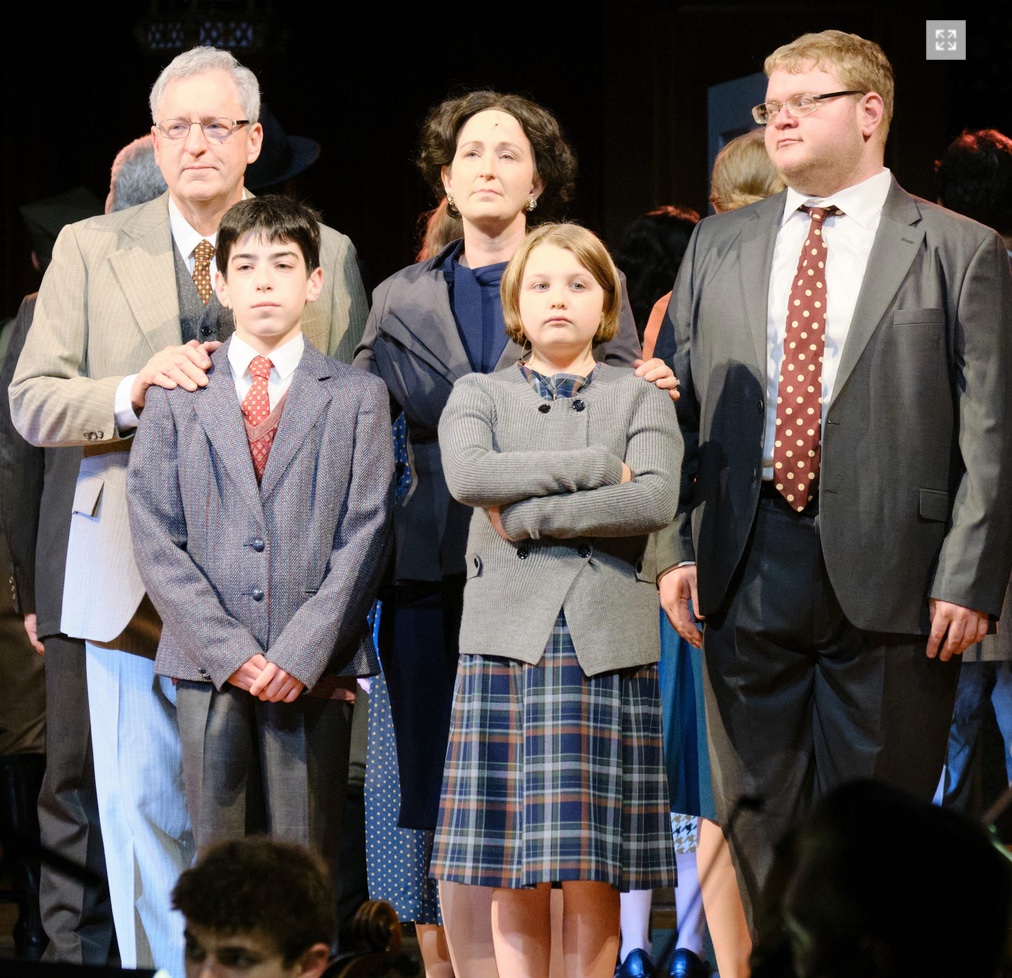
The orchestra, drawn from Cleveland’s fine pool of freelance musicians, sounded assured and expressive, and some lovely incidental solos graced the score. T. Paul Lowery’s set and projection design used the stage to maximum effect while Marcus Dana’s lighting kept one’s eyes and ears focused on the matters at hand.

This production combined the patina of professionalism with the fervor and commitment of family and community — and a glance down the list of participants reveals many interconnections. Obviously well funded by a number of individuals and sources, The Sparks Fly Upward was a huge undertaking and the results were impressive.
Published on ClevelandClassical.com June 20, 2022.
Click here for a printable copy of this article




